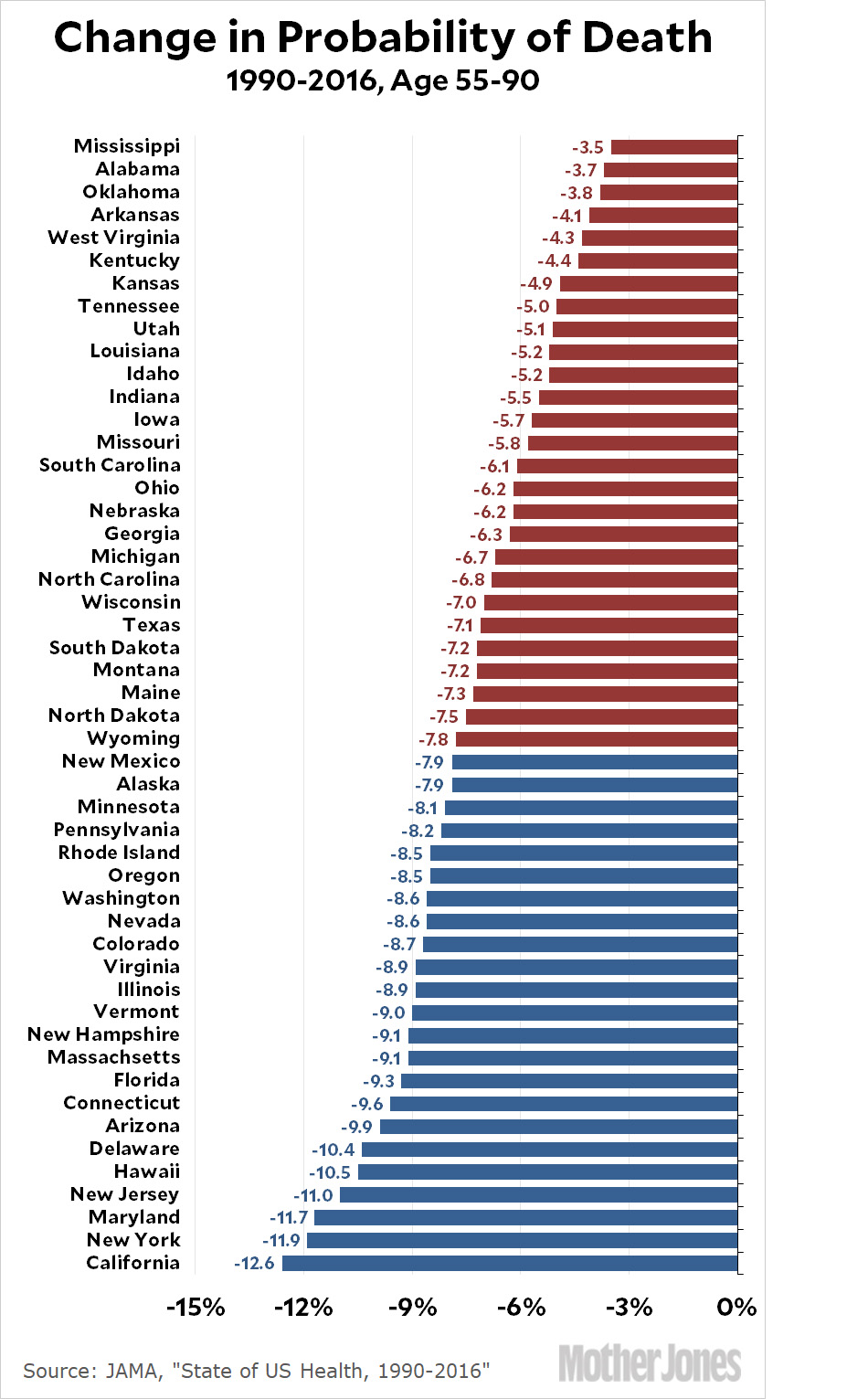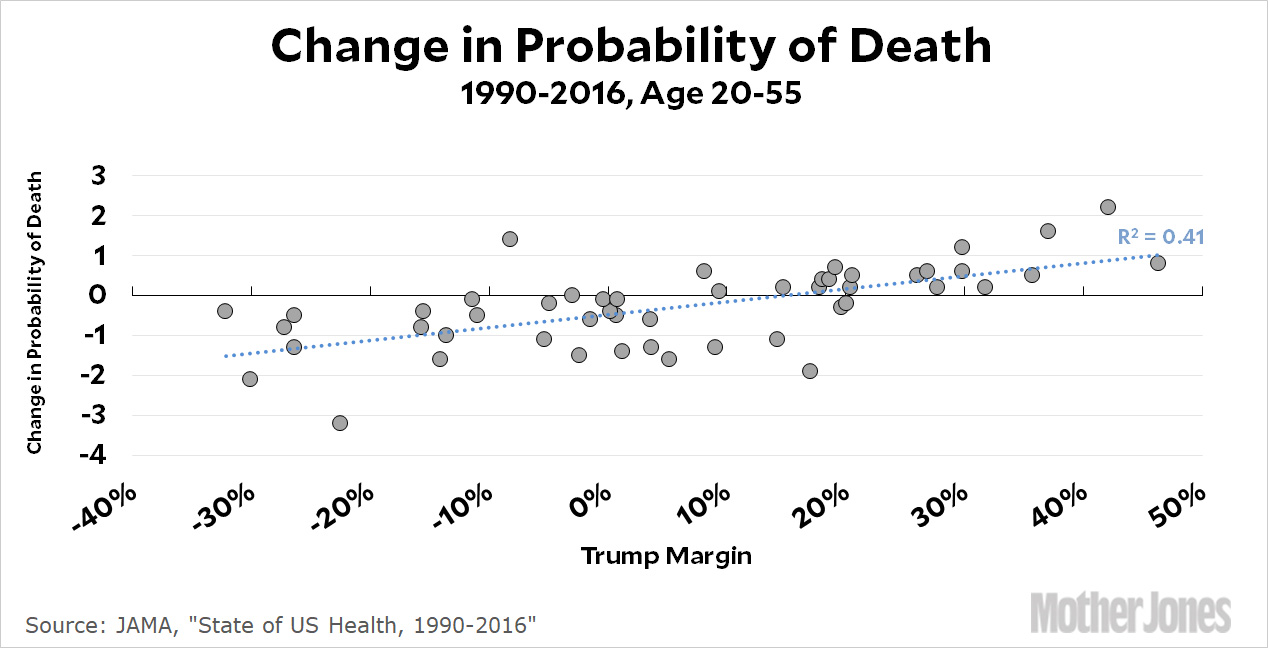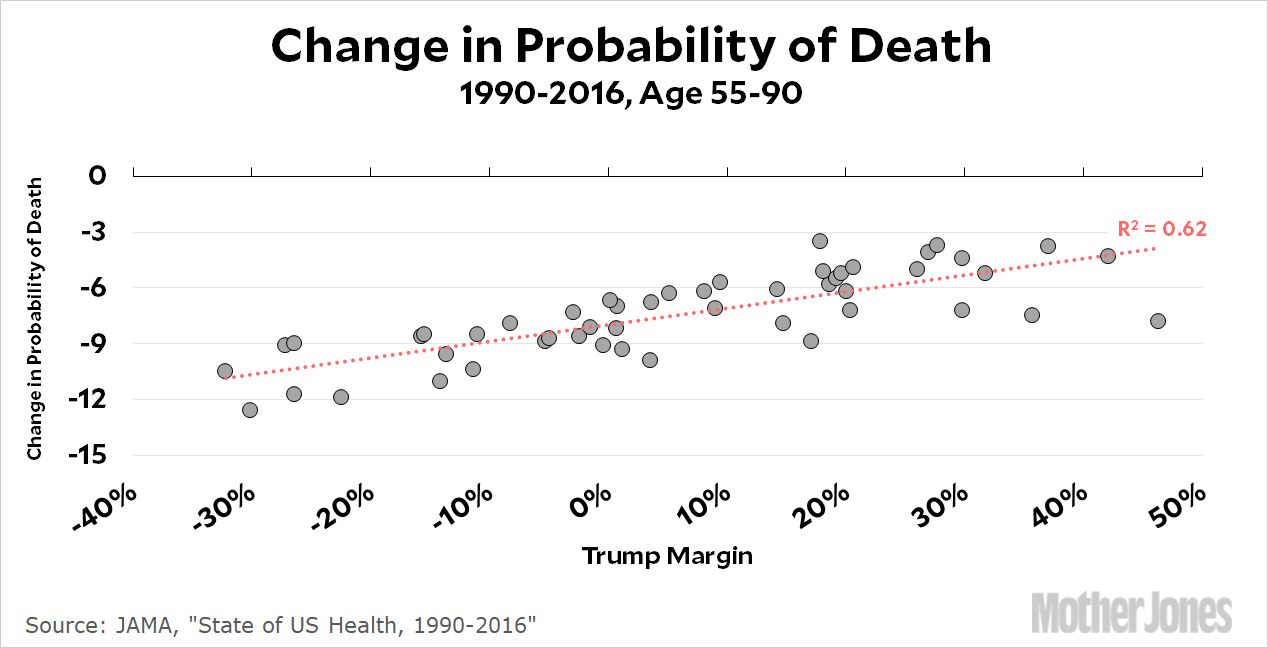At the risk of being too morbid today, I’m returning to the charts I posted earlier about changes in death rates by state. The charts I posted were for people aged 20-55, but I’m 59 so I was curious about the results for the higher age group. First, here’s the raw data:

Every single state has reduced the chance of dying among the elderly, primarily thanks to huge advances in treating heart attacks. However, the differences between states are still very large. California has reduced the chance of dying by 13 percentage points, from 80 percent to 67 percent, while Mississippi has reduced the chance of death by only 4 points, from 84 percent to 80 percent.
But now for the interesting part. The first thing I noticed about this chart is that it seems to be even more segregated by red and blue states than the chart for the middle aged. That got me curious about the actual correlation between change in health and other factors. At first I tried regressing on the African-American share of each state’s population, but that produced nothing. Then I regressed on each state’s margin of victory for Donald Trump. For the middle aged, the correlation was strong:

For the older population, the correlation was even stronger:

I know there are all sorts of confounders here, since Trump’s popularity is already correlated with lots of other things. Nevertheless, the better a state does at extending the lives of its residents, the more Democratic it is. The worse a state does, the more Republican it is.
So which way does causation go? Do blue states spend more money on health, and therefore do better on health metrics like these? Or do red state residents do poorly on health metrics, which makes them angry at government and therefore more likely to vote Republican? Or both? Or neither?
One way or the other, though, it sure looks like something is going on. Red state residents continue to vote for low taxes, low services, and Republican government, even though this wreaks havoc with their health. Then they get all bitter and angry because their health is bad and nobody pays attention to their woes, so they vote for Republicans some more. That’s quite the amazing feedback loop.

















